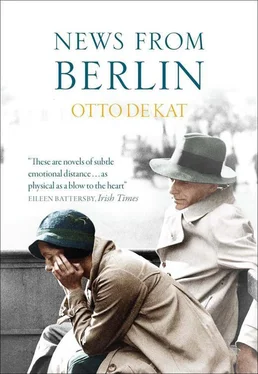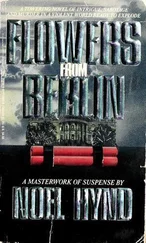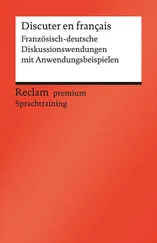“Do you remember us playing in the park, when a boy got hold of me and threw me over? You were there in a trice. You grabbed him and pushed him in the pond. And fished him out again. I believe I considered that quite normal at the time, but from then on I knew I had nothing to fear as long as I was with you. If worst comes to worst, Carl and I will come and hide at your place, alright?” Emma laughed, putting her hand on his arm. “So stay right where you are, Watse, and don’t look so serious.”
In retrospect, their skating trip on the frozen Sneekermeer had been one of the most glowing, light-hearted days of her life. They had skated as never before, nimbly and fast, Watse and she close together, hands clasped behind their backs, the sun just above the reeds, the sky like a dome over the countryside. The world was cast in ice, and it was theirs, theirs alone. Legs, feet, and wide, gliding strokes, nothing more. There was hardly any wind, the ice was hard and dry, no cracks or ridges. Late in the afternoon, when the sun had almost gone and darkness began to fall over the landscape, they stopped. Carrying their skates in their hands, they set off towards a bus stop. Half past four, and they could hear the bus approaching from a kilometre’s distance. Fields stretched away in dark, chessboard squares as the brightly lit vehicle floated towards them. Watse waved; they got on. But it felt as if they were on the bus in body only, not in mind, for they were children again playing on the embankment until Mrs Hepkema called for them to come indoors.
*
At long last, the lugubrious man led her via a double-doored lock-chamber into a slightly larger space, as sparsely furnished as the changing room of a public swimming bath. A few uniforms hung from the pegs on the walls, in the middle stood a grey metal desk with a wooden chair on either side. It was deathly quiet; the double doors were soundproof.
Once the dumb play and trivial opening questions were over, Emma felt her throat tighten, as if all the air were being sucked out of the room. She had to get out of there, do something. She stood up, looked the boxer in the eye and said: “I have nothing more to say. I should like to go now, if you don’t mind, or else please make a telephone call to Herr von Trott at the foreign office.”
Her tone was clear, almost casual, self-possessed.
The shoe-tapping ceased, the cigarette was stubbed out in the metal ashtray, the jacket given a tug, the chair pushed back.
“Your mother…”
Of the few sentences uttered by the ghoul this was the one that kept coming back to her. A dirty-minded little man being provocative. Or was there more to it? It had sounded almost accusing, about her mother being quite a looker. In the Gestapo’s eyes, of course, the same eyes that had been ogling her breasts during their cosy exchange.
When she finally stood outside again, her bag slung over her shoulder, she noticed how chilled she felt in the warm air. The June light and the summer heat had been abruptly cut off upon entering the building. A few hours of isolation and bewilderment and exposure to insulting manners were enough to turn her world upside down. She set off along Prinz-Albrecht-Strasse, then broke into a run, only to slow down after a few paces because it would attract too much attention: nobody ran like that. She paused to catch her breath, leaning against the wall of a shop with tears running down her face as she wept over Watse, over Carl, over everything. A man passing by eyed her with concern and asked if she needed help, but she waved him off. The show of kindness was exceptional: people tended to shun one another in the street, at least until the next bombing raid, when they would rally together and help each other to their feet.
*
Carl would be on his train by now, Emma reflected. She was still leaning against the garden gate, absorbed in what she now thought of as her kidnapping. Kidnapped in broad daylight by a couple of upstarts, and subjected to questioning by a loathsome thug. She had made out to Carl that she had slept well. She had not told him how undone she was over the arrest and interrogation, how worried about her father, how Watse’s death had hit her all over again. She did not wish to burden him unnecessarily. She had to think ahead to that evening. Would she manage to get hold of wine for her birthday dinner? And what on earth should she cook, she didn’t have near enough ration cards. Slowly, Emma bestirred herself. Household concerns took over, such as shopping – especially shopping. She wondered how her mother would have dealt with providing a meal for twenty guests. Her mother was experienced in such matters, her parents were always having people to dinner: mixed parties of diplomats, journalists, with some figures from the art world thrown in. She had never seen her mother truly enjoying herself in the role of hostess; even as a child she had felt that it was her father who was behind all the entertaining. Her mother did her bit, but with a certain reserve. Her mother, who was considered quite a looker by the Gestapi, as Carl always referred to them. That her father was involved in clandestine dealings was not surprising, though it had never occurred to her that the Nazis were having him followed everywhere. But her mother, what could she have to do with anything? Her mother lived in London, and surely the Germans weren’t cracked enough to have a spy reporting on her appearance. So it had to be a report from a while back, the time they had gone skiing together. But that was more than a year ago. Were they already watching him then? Everything worried her, her thoughts flying in all directions. And she didn’t even want to think, all she wanted was to go and do her shopping, stand in some endless queue, say hello to the next-door neighbour, sweep the doorstep if need be.
*
“Dear friends.” Carl stood up, glass in hand. It took a while for the chatter to die down at the long table linking the front and back rooms. The twenty guests sitting shoulder to shoulder gave an impression of resoluteness. They rallied themselves.
“Dear friends, welcome to this house of abundance. You have all contributed marvellously. I counted a dozen omelettes, five sandwiches, twenty plates of soup, seven heads of lettuce, one cucumber, two loaves of bread, and twenty napkins – take care, the latter are not edible.”
Carl spoke as if it were peacetime. The late sun made the wine sparkle in the glasses raised to Emma.
“My dearest Emma, here is to you, to another year with you. May the war be over by the end of it, may we all be gathered together again a year from now.”
Glasses were clinked, smiles were beamed at Emma and Carl, it was like a wedding feast. In the middle of war, in the middle of Germany, could it be true that they were all there while pretending to be elsewhere? Emma felt for Carl’s hand and squeezed it under the table. Their lives had gone underground, their love was not intended for the eyes of others. Everything beyond this room and this company of friends had become suspect.
Opposite Emma sat Adam Trott. All the guests knew each other well, there was not a shred of mistrust, a safer ambience was hard to imagine. He rose to his feet. Adam, the tireless mediator between the most miscellaneous opponents of the regime. A troupe of individuals scattered by the storm, keeping their heads down until further notice, biding their time with dreams of freedom.
Adam was an optimist. Emma admired him for what Carl had told her about him, but more for him as a person. She heard him evoke the Germany of his youth, for which he was so intensely nostalgic. That Germany had been stolen from them, but it still existed, smouldering underground as a moorland fire. With a lover’s zeal, he entreated his audience not to forsake their country.
Читать дальше












